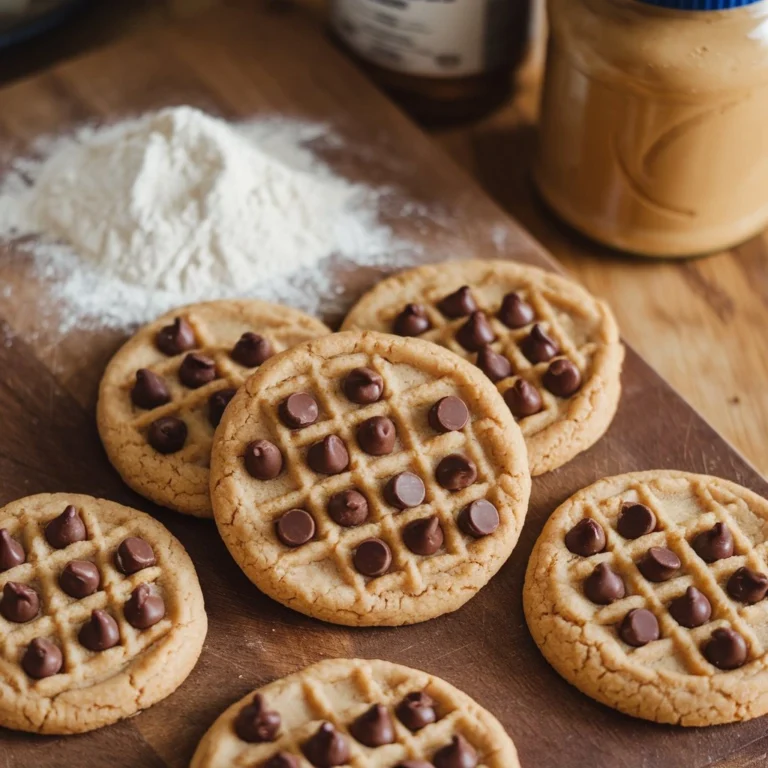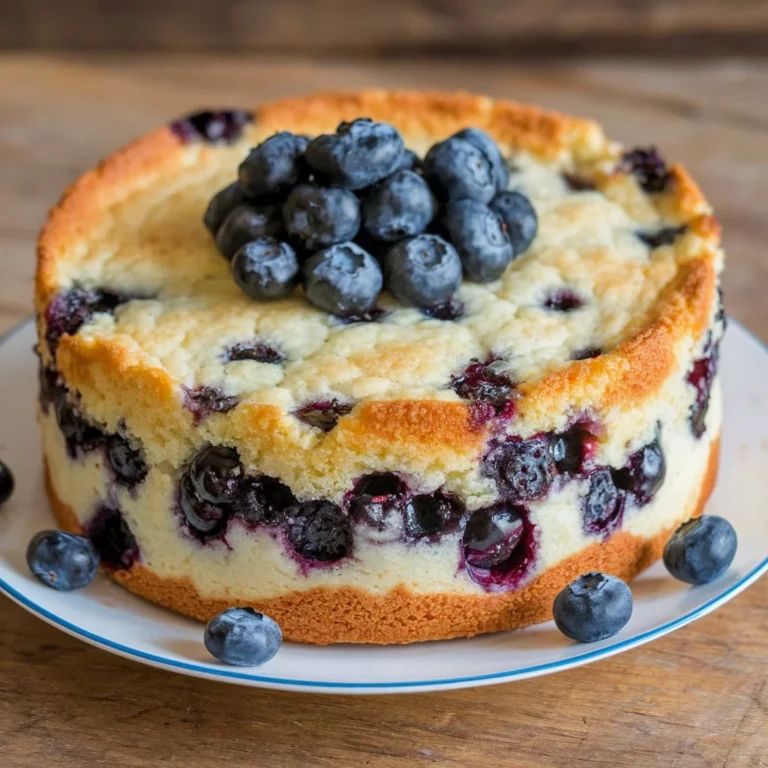Are Banana Muffins Healthy?
Banana muffins are a common favorite among breakfast and snack lovers. Their soft texture, natural sweetness, and portability make them a go-to option for those looking for a quick bite. However, while these treats may seem harmless, there’s an ongoing debate about whether banana muffins are truly healthy.
In this article, we’ll take a closer look at what banana muffins are made of, examine their nutritional content, explore healthier alternatives, and discuss how to enjoy them as part of a balanced diet. By the end, you’ll know exactly what to look for in a banana muffin recipe and how to make or choose a healthier version.
Table of Contents
- What Makes a Muffin Healthy or Unhealthy?
- Core Ingredients in Banana Muffins and Their Impact
- Bananas
- Flour
- Sweeteners
- Fats
- Add-ins
- Nutritional Overview of Banana Muffins
- Health Benefits of Banana Muffins
- Fiber and Digestion
- Potassium and Heart Health
- Protein and Muscle Support
- Common Unhealthy Elements in Banana Muffins
- Healthy Banana Muffin Variations
- Gluten-Free Banana Muffins
- Vegan Banana Muffins
- Low-Sugar Banana Muffins
- Keto-Friendly Banana Muffins
- How to Make Banana Muffins Healthier
- Portion Control
- Substitute Refined Ingredients
- Add Nutrient-Rich Ingredients
- FAQs: Common Questions About Banana Muffins
- Conclusion
What Makes a Muffin Healthy or Unhealthy?
When we think of muffins, we usually picture them as sweet, tasty treats. Unfortunately, most muffins, especially store-bought versions, tend to lean towards the unhealthy side. But what exactly makes a muffin healthy or unhealthy?
Healthy Muffins
A healthy muffin is typically made with wholesome ingredients that provide nutrients without excessive sugar or unhealthy fats. These muffins are often:
- Made with whole grains instead of refined flour.
- Sweetened with natural sweeteners like honey, maple syrup, or fruit instead of refined sugar.
- Contain healthy fats like olive oil, avocado oil, or Greek yogurt instead of butter or margarine.
- Packed with fiber, protein, and nutrients from ingredients like nuts, seeds, and fruits.
Unhealthy Muffins
Conversely, muffins can become unhealthy when they’re filled with refined, processed ingredients:
- Refined flour: Stripped of its nutrients and fiber, contributing to blood sugar spikes.
- High sugar content: Some muffins can contain more sugar than a candy bar, leading to excessive calorie intake and health problems like diabetes.
- Unhealthy fats: Muffins made with butter, margarine, or other hydrogenated oils can be high in saturated and trans fats, increasing the risk of heart disease.
Muffins made with healthier ingredients can still be delicious, but they won’t have the negative health effects that often come with traditional recipes. The trick is knowing what to look for, which leads us to the core ingredients of banana muffins.
Core Ingredients in Banana Muffins and Their Impact
The healthiness of a banana muffin depends on its ingredients. Below are the most important ingredients in banana muffins and how they can either improve or harm your health.
Bananas
are the star ingredient in banana muffins, and they bring a lot to the table in terms of health benefits:
- Natural Sweetness: are naturally sweet, meaning you can reduce or eliminate added sugars in your muffin recipe. Their sweetness comes from natural sugars, including fructose, sucrose, and glucose.
- High in Fiber: are a good source of dietary fiber, which aids in digestion, keeps you full longer, and supports heart health. A medium-sized banana contains about 3 grams of fiber.
- Rich in Potassium: Potassium is essential for maintaining normal blood pressure and heart function. Bananas are one of the best sources of potassium, with around 400-450 mg per medium banana.
- Vitamins and Antioxidants: Bananas provide several vitamins, including Vitamin C, B6, and antioxidants that protect your cells from oxidative stress and inflammation.
Bananas also serve as a great substitute for ingredients like butter and sugar in baked goods because of their moisture and natural sweetness. Using ripe bananas allows you to cut down on refined sugars without losing the sweetness.
Flour
The type of flour you use is crucial in determining whether your banana muffins are healthy or not. There are several flour options, each with different health impacts:
- Refined White Flour: Traditional banana muffin recipes often call for refined white flour. This type of flour is stripped of most of its nutrients and fiber, making it a less healthy choice. Consuming refined flour can cause rapid blood sugar spikes, leading to energy crashes and potential long-term health issues like diabetes.
- Whole Wheat Flour: Whole wheat flour retains the bran and germ of the wheat, making it a much healthier option. It’s rich in fiber, which helps regulate digestion, and contains essential nutrients like iron and B vitamins. Muffins made with whole wheat flour are more filling and provide steady energy.
- Gluten-Free Flour Alternatives: For those with gluten intolerance or celiac disease, gluten-free flour alternatives like almond flour, oat flour, or coconut flour are great substitutes. These flours add protein, fiber, and healthy fats, making the muffins more nutritious.
Sweeteners
One of the main contributors to unhealthy muffins is the use of refined sugars. However, there are plenty of healthier alternatives:
- Refined Sugar: Store-bought banana muffins are often loaded with refined white sugar, which adds empty calories without any nutrients. Consuming too much sugar can lead to weight gain, insulin resistance, and other metabolic disorders.
- Natural Sweeteners: Healthier banana muffin recipes often use maple syrup, honey, or coconut sugar instead of refined sugars. These natural sweeteners contain trace minerals and have a lower glycemic index, meaning they don’t cause the same rapid spikes in blood sugar.
- Fruit-Based Sweeteners: Bananas themselves add a natural sweetness, meaning you can reduce the amount of added sweeteners. Other fruits, like dates, applesauce, or prune puree, can also be used to sweeten your muffins naturally. For an example of how to use prune puree as a sweetener, check out this prune cupcakes recipe.
Fats
Fats are another critical component of banana muffins, and the type of fat used can make a big difference:
- Unhealthy Fats: Many traditional muffin recipes use butter or margarine, which are high in unhealthy saturated fats and trans fats. These types of fats can increase your cholesterol levels and contribute to heart disease.
- Healthy Fats: A healthier alternative is using coconut oil, olive oil, or Greek yogurt in place of butter. These fats contain essential fatty acids and can reduce inflammation. Greek yogurt, in particular, adds protein and moisture to the muffins, making them rich and fluffy without the need for large amounts of oil.
Add-ins
Many banana muffin recipes include additional ingredients like chocolate chips, nuts, seeds, or dried fruit. Depending on the choice of add-ins, these can either improve or worsen the healthiness of the muffins:
- Healthy Add-ins: Adding nuts (like walnuts or almonds) or seeds (like flaxseeds or chia seeds) can increase the protein, fiber, and healthy fat content of your muffins. These additions also provide important micronutrients like magnesium, zinc, and omega-3 fatty acids.
- Unhealthy Add-ins: Adding excessive amounts of chocolate chips, sugary dried fruits, or candy pieces can quickly turn a healthy muffin into a dessert. If you enjoy a bit of chocolate, opt for dark chocolate chips that are lower in sugar and higher in antioxidants.
Nutritional Overview of Banana Muffins
The nutritional value of banana muffins varies greatly depending on the ingredients used. Below is a breakdown of the typical nutritional content of a banana muffin made with healthier ingredients.
Average Nutritional Content of a Healthy Banana Muffin (per serving, based on a whole wheat recipe):
- Calories: 180-220
- Carbohydrates: 30-35g
- Fiber: 4-5g
- Sugars: 10-12g (with natural sweeteners)
- Protein: 4-6g
- Fat: 7-9g (with healthy fats like coconut oil or Greek yogurt)
The fiber content from whole wheat flour and bananas, combined with healthy fats and moderate sugars, makes this version of banana muffins a more balanced snack.
In contrast, traditional store-bought banana muffins or those made with refined ingredients can have significantly more calories and sugar:
Average Nutritional Content of a Traditional Banana Muffin (per serving, based on a refined recipe):
- Calories: 300-400
- Carbohydrates: 50-60g
- Fiber: 1-2g
- Sugars: 20-30g (with refined sugar)
- Protein: 2-4g
- Fat: 12-15g (with butter or margarine)
The stark difference in calories, fiber, and sugar between these two examples shows the importance of choosing the right ingredients.
Health Benefits of Banana Muffins
When made with the right ingredients, banana muffins can offer several important health benefits. Here are some key benefits you can expect from healthy banana muffins:
Fiber and Digestion
Both bananas and whole wheat flour are excellent sources of fiber. Fiber helps regulate digestion, preventing constipation and promoting a healthy gut. Additionally, a high-fiber diet has been linked to a reduced risk of heart disease, stroke, and certain types of cancer.
Fiber also slows the absorption of sugar into the bloodstream, which helps maintain stable blood sugar levels and prevents the spikes and crashes associated with refined carbohydrates.
Potassium and Heart Health
Bananas are well-known for their high potassium content, with a medium banana containing around 400-450 mg. Potassium is a crucial mineral that helps regulate blood pressure by counteracting the effects of sodium. It also supports normal heart and muscle function.
Including potassium-rich foods like bananas in your diet can help lower your risk of stroke, heart disease, and hypertension. Since many people don’t get enough potassium in their diets, banana muffins can help bridge that gap.
Protein and Muscle Support
Protein is essential for building and repairing muscle tissue, especially after exercise. By incorporating high-protein ingredients like Greek yogurt, nuts, or seeds into your banana muffin recipe, you can increase the protein content of each muffin, making it a more balanced snack.
Adding nuts like walnuts or almonds not only boosts the protein content but also provides healthy fats that support brain function and reduce inflammation.
Common Unhealthy Elements in Banana Muffins
While banana muffins have the potential to be healthy, certain ingredients can make them unhealthy if you’re not careful. Here are the most common unhealthy elements to watch for in banana muffin recipes:
Refined Sugars
Many traditional banana muffin recipes contain refined sugar, which adds empty calories without providing any essential nutrients. Overconsumption of sugar is linked to several health problems, including obesity, diabetes, and heart disease. If you want to keep your muffins healthy, opt for natural sweeteners like honey or maple syrup.
Some muffin recipes, especially store-bought varieties, may contain hidden sugars in the form of corn syrup, brown sugar, or artificial sweeteners. Always check the label if you’re purchasing pre-made muffins or stick to homemade recipes where you can control the sugar content.
Refined Flour
Refined flour is another common culprit in unhealthy muffins. White flour is stripped of most of its nutrients and fiber during processing, leaving only simple carbohydrates that are quickly digested and absorbed into the bloodstream. This can lead to blood sugar spikes, energy crashes, and overeating.
Instead, opt for whole wheat flour, oat flour, or almond flour to increase the fiber and nutrient content of your banana muffins.
Unhealthy Fats
Many muffin recipes use butter, margarine, or vegetable oil, which are high in saturated and trans fats. These fats can raise your cholesterol levels and increase your risk of heart disease. Instead, use healthier fats like coconut oil, olive oil, or Greek yogurt, which provide essential fatty acids and reduce inflammation.
High-Calorie Add-ins
It’s easy to turn a healthy banana muffin into a dessert by adding ingredients like chocolate chips, candy, or large amounts of dried fruit. While these add-ins may enhance the flavor, they also increase the calorie, sugar, and fat content of your muffins.
If you enjoy a bit of chocolate in your banana muffins, opt for dark chocolate chips that are lower in sugar and higher in antioxidants. You can also reduce the amount of dried fruit or choose unsweetened varieties to keep the sugar content in check.
Healthy Banana Muffin Variations
If you want to make banana muffins even healthier, there are plenty of recipe variations to suit different dietary needs and preferences. Here are a few healthy banana muffin variations to try:
Gluten-Free Banana Muffins
For those with gluten intolerance or celiac disease, you can easily make gluten-free banana muffins by using gluten-free flour blends. These blends typically contain a mix of rice flour, tapioca flour, and potato starch, which provide a similar texture to wheat flour. You can also use almond flour or coconut flour for a higher-protein, lower-carb option.
Vegan Banana Muffins
Vegan banana muffins are easy to make by replacing eggs and dairy with plant-based alternatives. Instead of eggs, use a flaxseed or chia seed mixture (1 tablespoon of ground seeds mixed with 3 tablespoons of water equals one egg). Replace dairy products like milk or yogurt with almond milk, coconut milk, or soy yogurt.
This variation is ideal for those following a plant-based diet, and the flaxseeds or chia seeds add extra fiber and omega-3 fatty acids.
Low-Sugar Banana Muffins
If you’re looking to reduce the sugar content of your banana muffins, you can eliminate refined sugar altogether by using mashed bananas, applesauce, or dates to sweeten the batter. These fruit-based sweeteners provide natural sugars along with fiber, vitamins, and minerals, making them a much healthier option.
You can also reduce the amount of sugar by using stevia or monk fruit sweetener, both of which are natural, calorie-free alternatives to sugar.
Keto-Friendly Banana Muffins
For those following a low-carb or keto diet, banana muffins can still be part of your menu with a few modifications. Use almond flour or coconut flour instead of wheat flour to keep the carbohydrate content low. Sweeten the muffins with erythritol or monk fruit sweetener instead of sugar.
Since bananas contain natural sugars and carbohydrates, you may need to use a smaller amount of mashed banana to keep the carb count in check. You can also add ingredients like cocoa powder or peanut butter to enhance the flavor without adding too many carbs.
How to Make Banana Muffins Healthier
If you want to enjoy banana muffins without sacrificing your health goals, here are some tips to make them even healthier:
Portion Control
Even healthy banana muffins can contribute to weight gain if you eat too many at once. Stick to small or medium-sized muffins, and avoid jumbo-sized muffins that contain excessive calories and sugar.
You can also control your portions by making mini muffins, which are smaller and allow you to enjoy a treat without overindulging.
Substitute Refined Ingredients
Whenever possible, substitute refined ingredients like white flour, white sugar, and butter with healthier alternatives. Use whole wheat flour, coconut sugar, and Greek yogurt instead. These substitutions will increase the fiber, reduce the sugar content, and lower the unhealthy fat content of your muffins.
Add Nutrient-Rich Ingredients
Boost the nutritional value of your banana muffins by adding nuts, seeds, and whole grains. Walnuts, flaxseeds, chia seeds, and oats are all excellent options that add protein, fiber, and healthy fats to your muffins. You can also add grated vegetables like zucchini or carrots for extra vitamins and moisture.
For more creative muffin ideas, check out this guide to flavorful coffee cupcake recipes that include unique variations and healthy frosting tips.
FAQs: Common Questions About Banana Muffins
Are Banana Muffins Good for Weight Loss?
Banana muffins can be part of a healthy weight loss plan if made with nutritious ingredients and consumed in moderation. Opt for recipes that use whole wheat flour, natural sweeteners like honey, and healthy fats like Greek yogurt. Make sure to control portion sizes, as large muffins can contain more calories than you might think.
How Can I Reduce Sugar in Banana Muffins?
You can reduce sugar in banana muffins by using mashed bananas, applesauce, or dates as natural sweeteners. You can also reduce the amount of sugar in the recipe or substitute it with a natural, calorie-free sweetener like stevia or monk fruit sweetener.
Check out this guide on how to reduce sugar in baked goods for more tips.
What Can I Add to Banana Muffins to Make Them Healthier?
To make banana muffins healthier, consider adding nutrient-dense ingredients like chia seeds, flaxseeds, walnuts, or oats. These ingredients will boost the fiber, protein, and healthy fat content of your muffins, making them more filling and nutritious.
You can also add dark chocolate chips or grated vegetables like zucchini to enhance the flavor and add extra vitamins and minerals.
Can Banana Muffins Be Gluten-Free?
Yes, banana muffins can be made gluten-free by using gluten-free flour blends or alternatives like almond flour, coconut flour, or oat flour. These flours provide extra fiber, protein, and healthy fats, making the muffins more nutritious.
Are Banana Muffins Good for Breakfast?
Banana muffins can be a good breakfast option if they’re made with healthy ingredients. Opt for recipes that use whole grains, natural sweeteners, and healthy fats. Pair your muffin with a source of protein, like Greek yogurt or a boiled egg, to create a balanced and satisfying breakfast.
Conclusion
Banana muffins can be both a healthy and delicious snack or breakfast option, but it all depends on the ingredients you use. By choosing whole wheat flour, reducing added sugars, and incorporating healthy fats like Greek yogurt or coconut oil, you can enjoy banana muffins as part of a balanced diet.
Incorporating nutrient-dense add-ins like nuts, seeds, and grated vegetables can further enhance the health benefits of your muffins, making them more filling and nutritious.
For more inspiration, check out some delicious and healthy muffin recipes like this prune cupcakes recipe or explore variations with unique flavors and nutritious frosting in this coffee cupcake recipe guide.
By following these tips, you can enjoy the sweet and satisfying flavor of banana muffins without sacrificing your health goals.







